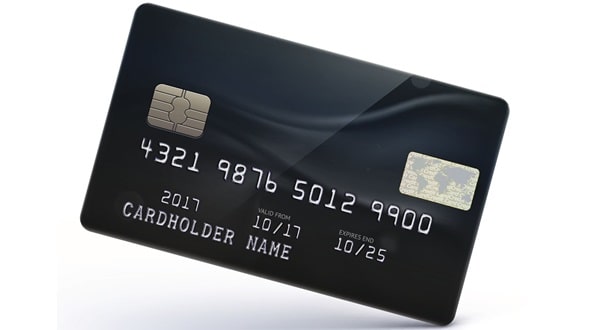Applying for a secured credit card can be a great step toward building or rebuilding your credit. However, getting a decline notice can be frustrating and confusing. While secured cards are designed to be more accessible, approval isn’t guaranteed. There are several reasons why your application might have been denied, ranging from incomplete information to issues with your financial profile.
Let’s explore the common reasons for a declined secured credit card application and what steps you can take to improve your chances next time.

Understanding Common Reasons for Declined Applications
If you’ve found yourself wondering, can you be declined for a secured credit card? Know that secured credit cards are designed to be more accessible but require you to meet specific criteria. Understanding the common reasons for declined applications can help answer this question.
Incomplete or Inaccurate Application Information
Even small errors on your application, such as misspelled names, incorrect Social Insurance Numbers (SIN), or missing details, can lead to rejection. Lenders rely on accurate information to verify your identity and financial history. Double-check all fields before submitting your application to avoid unnecessary delays or denials.
Credit History Red Flags
While secured credit cards are often available to individuals with poor or no credit, certain red flags can still result in a denial. These include recent bankruptcies, active collections, or a history of missed payments. Lenders may see these as signs of ongoing financial instability, even if you’re trying to rebuild your credit.
Insufficient Security Deposit
Your security deposit is the foundation of a secured credit card. If you fail to provide the minimum required deposit or the payment method you use for the deposit is declined, your application cannot proceed. Ensure you have sufficient funds and use a reliable payment method when submitting your deposit.
Unstable Income or Employment
Some issuers require proof of steady income to ensure you can handle monthly payments. If you have gaps in employment, irregular income, or fail to provide required documentation, the lender may question your ability to manage the account responsibly. Providing pay stubs or other income verification can help strengthen your application.
Excessive Debt-to-Income Ratio
Even with a secured card, lenders assess your overall financial health. If you already have significant debt relative to your income, it could raise concerns about your ability to manage additional credit. Reducing existing debt and creating a budget can improve your financial profile.
Identity Verification Issues
If the lender cannot verify your identity due to mismatched or incomplete information, your application may be declined as a precaution against fraud. Ensure your personal information, such as your name, address, and SIN, matches official records and is entered correctly.
Application Outside of Eligibility Criteria
Each issuer has unique eligibility criteria, such as minimum age, residency requirements, or specific financial thresholds. Review the card’s terms and conditions to confirm you meet all requirements before applying.
Credit History Concerns: What You Need to Know
Your credit history is one of the most important factors lenders evaluate, even when applying for a secured credit card. While these cards are designed to help individuals with poor or limited credit, certain red flags in your credit report can still result in a declined application.
Recent Bankruptcies
Some lenders may hesitate to approve your application if you recently filed for bankruptcy. They might view this as a sign of unresolved financial challenges. Waiting until your bankruptcy has been discharged and rebuilding your credit can improve your chances of approval.
Active Collections Accounts
Unpaid debts that have gone to collections signal a lack of financial responsibility. Lenders might see this as a risk, even if the debt is unrelated to your current application. Resolving outstanding collections accounts and keeping proof of payment can help demonstrate financial improvement.
Multiple Recent Credit Applications
If you’ve recently applied for several credit accounts, lenders may interpret this as a sign of financial distress. Each application creates a hard inquiry on your credit report, which can temporarily lower your score and raise concerns about your credit-seeking behavior.
Late or Missed Payments
A history of late or missed payments on existing credit accounts can negatively impact your application. This behavior suggests you may have trouble managing future payments, even with the added security of a deposit. To improve your chances, ensure you consistently pay bills on time.
Fraud Alerts or Discrepancies
Fraud alerts or discrepancies in your credit report, such as accounts you didn’t open, can lead to delays or declines. If there are inaccuracies in your report, it’s essential to address them with the credit bureaus before applying.
Limited or No Credit History
While secured cards often cater to individuals with little or no credit history, some issuers may require a minimum track record to ensure you can manage a credit account. If your credit file is too thin, consider starting with a smaller financial product like a credit builder loan.
What to Do After Your Secured Credit Card Application is Declined
Being declined for a secured credit card can be frustrating, but treat it as a learning opportunity. Review the denial reason, which is usually provided by the issuer. Common issues include insufficient deposit, errors in your application, or concerns with your credit history.
Next, check your credit report for errors or red flags, such as unpaid collections, late payments, or fraudulent accounts. Dispute any inaccuracies and work on improving your financial health by paying down debts and making consistent, on-time payments. If your deposit amount is insufficient, save up for a larger deposit to strengthen your application and increase your chances of approval.
Finally, explore other credit-building options if reapplying immediately isn’t an option. Consider alternatives like credit builder loans, becoming an authorized user on someone else’s account, or researching secured cards with less stringent requirements. Once you’ve addressed the issues and improved your financial profile, you’ll be in a better position to reapply and achieve your credit-building goals.
Tips to Increase Approval Odds for Secured Credit Cards
Improving your chances of getting approved for a secured credit card starts with preparation. Begin by reviewing your credit report for errors, unpaid debts, or signs of fraud, and resolve any issues before applying. Ensure you have enough funds saved for the required security deposit—providing more than the minimum can demonstrate financial stability. Additionally, focus on lowering your debt-to-income ratio by paying down existing debts, as this shows lenders you can manage credit responsibly.
When filling out your application, provide complete and accurate information, and have supporting documents like proof of income ready if required. Avoid applying for multiple credit products at once, as this can harm your credit score. By being thorough and proactive, you can build a stronger application and take an important step toward establishing or rebuilding your credit.
Frequently Asked Questions
Are there residency requirements to qualify for a secured credit card?
Yes, most issuers require you to be a legal resident or citizen of the country where the card is issued. For example, in Canada, you typically need a valid SIN or proof of permanent residency.
Are there secured credit cards that don’t require a credit check?
Some secured credit cards don’t require a credit check. These cards use your security deposit as collateral, making them accessible to those with limited or poor credit history.
What roles does employment status play in secured credit card eligibility?
Employment status matters as many issuers require proof of steady income to ensure you can make payments. However, alternative income sources, like government benefits, may also be accepted.
Does the type of bank account affect eligibility for a secured credit card?
Issuers often require a valid checking or savings account to fund your security deposit and make payments. Some may also prefer you to have an account with their bank.

Meet Suhas Harshe, a financial advisor committed to assisting people and businesses in confidently understanding and managing the complexities of the financial world. Suhas has shared his knowledge on various topics like business, investment strategies, optimizing taxes, and promoting financial well-being through articles in InvestmentDose.com


